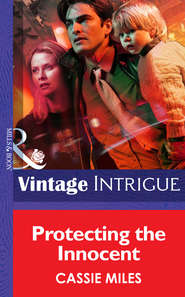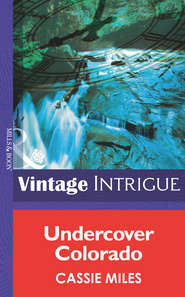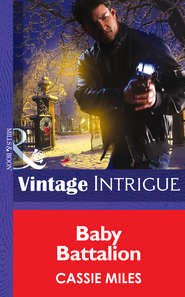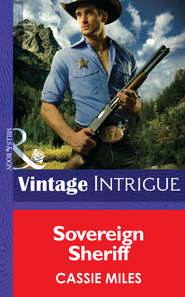По всем вопросам обращайтесь на: info@litportal.ru
(©) 2003-2024.
✖
Unforgettable
Автор
Год написания книги
2018
Настройки чтения
Размер шрифта
Высота строк
Поля
Colorado natives, like Caitlyn, took pride in the 10th Mountain Division. Founded during World War II, the original division was made up of elite skiers and mountain climbers who trained near Aspen. “Where were you stationed?”
“I’d rather not talk about it.”
After the time she’d spent embedded with the troops, she had a great deal of empathy for what they had experienced. To be completely honest, she had self-diagnosed her own low-grade case of post-traumatic stress disorder. But if Jack Dalton had come home from war an alcoholic, she had no desire to be his therapist. “Have you been drinking, Jack?”
“Not a drop, ma’am.”
In spite of his sloppy clothes and posture, his gaze was sharp. He was wary, intense. Maybe dangerous.
She was glad to be wearing her tool belt. Hammers and screwdrivers were handy weapons. Just in case. She looked behind him toward the driveway leading up to her house. “Where’s your car?”
“I had an accident. Walked the rest of the way.”
“Are you hurt?”
“A bit.”
“Oh my God, I’m a jerk!” She’d been treating him with suspicion, thinking he was a drunk when the poor guy was struggling to stay on his feet after a car accident. “Let’s get you inside. Make sure you’re okay.”
“I’m fine, ma’am.”
“Please, call me Caitlyn. I feel terrible for not realizing—”
“It’s all right.” He pushed away from the fence, obviously unsteady on his feet. “I was hoping you could loan me your car and your cell phone so I could go back to my truck and—”
“You’re not driving in your condition.” She went to him, grabbed his arm and slung it over her shoulder. “Come on, lean on me.”
“I’m fine.”
He tried to pull away, but she held on, adjusting his position so none of her tools poked into his side. Jack was a good seven or eight inches taller than she was, and he outweighed her by sixty or seventy pounds. But she could support him; she’d done this before.
As they moved toward the back door to her cabin, she flashed on a memory. So real, it felt like it was happening again, happening now.
The second vehicle in their convoy hit a roadside bomb. The thunder of the explosion rang in her ears. Still, she heard a cry for help. A soldier, wounded. Reporters weren’t supposed to get involved, but she couldn’t ignore his plea, couldn’t stand by impartially and watch him suffer. She helped him to his feet, dragged him and his fifty pounds of gear to safety before the second bomb went off.
Her heart beat faster as adrenaline pulsed through her veins. If she closed her eyes, she could see the fiery burst of that explosion. Her nostrils twitched with the remembered stench of smoke, sweat and blood.
At the two stairs leading to the door, Jack separated from her. “I can walk on my own.”
With a shudder, she forced her mind back to the present. Her memories were too vivid, too deeply carved into her consciousness. She’d give anything to be able to forget. “Are you sure you’re all right?”
His shoulders straightened as he gestured toward the door. “After you.”
The back door opened into a smallish kitchen with serviceable but elderly appliances and a beat-up linoleum floor of gray and pink blobs that she would certainly replace if she decided to stay at the cabin through the winter. Mentally, she started listing other projects she’d undertake. Repair roof on the horse barn. Replacing the railing on the porch. Staying busy kept the memories at bay.
She led Jack to the adjoining dining room and pointed to a chair at the oblong oak table. “Sit right there, and I’ll bring you some water.”
“Something’s wrong.” It was a statement, not a question.
“I don’t know what you mean.”
“Yes, you do.”
He stood very still, watching her, waiting for her to talk. Not going to happen. She knew better than to open the floodgate and allow her nightmare memories to pour into the real world.
Deliberately, she changed the subject. “Are you hungry?”
“I could go for a sandwich.”
Up close, he was disturbingly handsome with well-defined features and a dark olive complexion. His eyes were green—dark and deep. Not even his thick, black lashes could soften the fierceness in those eyes. He’d be a formidable enemy.
She noticed a swelling on his jaw and reached toward it. “You have a bruise.”
Before her fingers touched his face, he snatched her wrist. His movement was so quick that she gasped in surprise. He had the reflexes of a ninja. Immediately, he released his grasp.
As he moved away from the table, she could see him gathering his strength, pulling himself together. He went through the dining room into the living room. His gaze darted as though assessing the room, taking note of where the furniture was placed. He ran his hand along the mantle above the fireplace. At the front door, which she’d left open, he peered outside.
“Looking for something?” she asked.
“I like to know where I am before I get comfortable.”
“Reconnaissance?”
“I guess you could say that.”
“Trust me, Jack. There’s nothing dangerous in this cabin.” He wasn’t entering an insurgent hideout, for pity’s sake. “I don’t even have a dog.”
“You live alone.”
Women living alone were never supposed to admit that they didn’t have anyone else around for protection, especially not to a stranger. Her hand dropped to the hammer on her tool belt. “I’m good at taking care of myself.”
“I’m sure you are.”
Though he kept his distance, she didn’t like the way he was looking at her. Like a predator. “Would you please stop pacing around and sit?”
“Before I do, I need to take something out of my belt.” He reached behind his back. “I don’t want you to be alarmed.”
Too late. “Of course not.”
He pulled an automatic pistol from the waistband of his jeans. The sight of his weapon shocked her. She’d made a huge mistake by inviting him into her cabin.
THE THROBBING IN HIS HEAD made it hard to think, but he figured he had two options. Either he could shoot Caitlyn and steal her car or he could talk her into handing over the car keys voluntarily.
Shooting her would be easier.
But he didn’t think he was that kind of man.
He reassured her again, “Nothing to worry about.”











